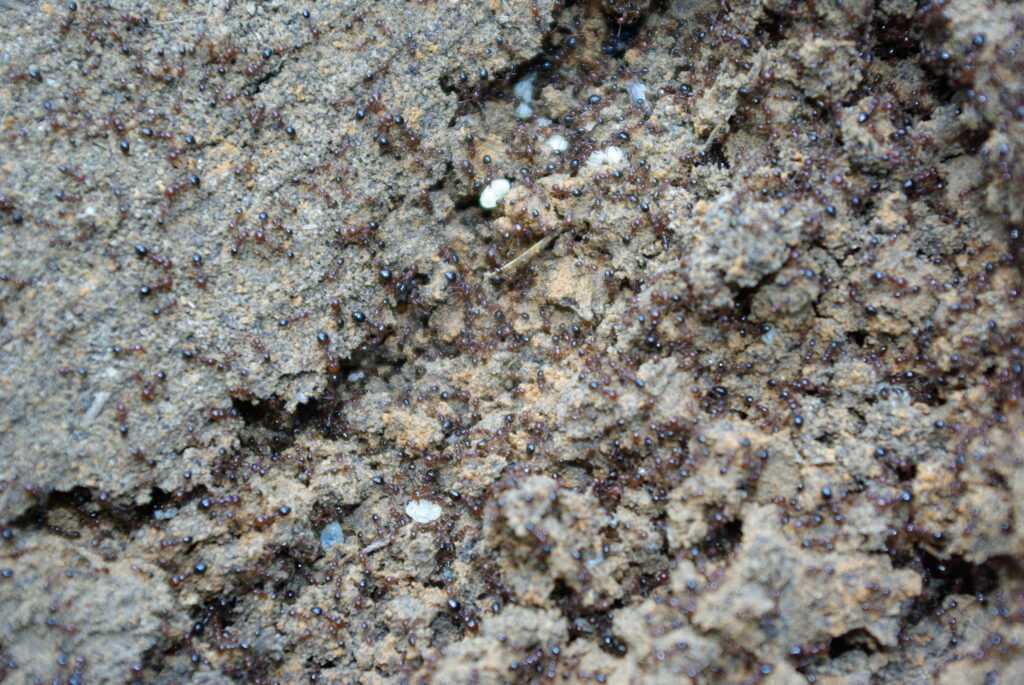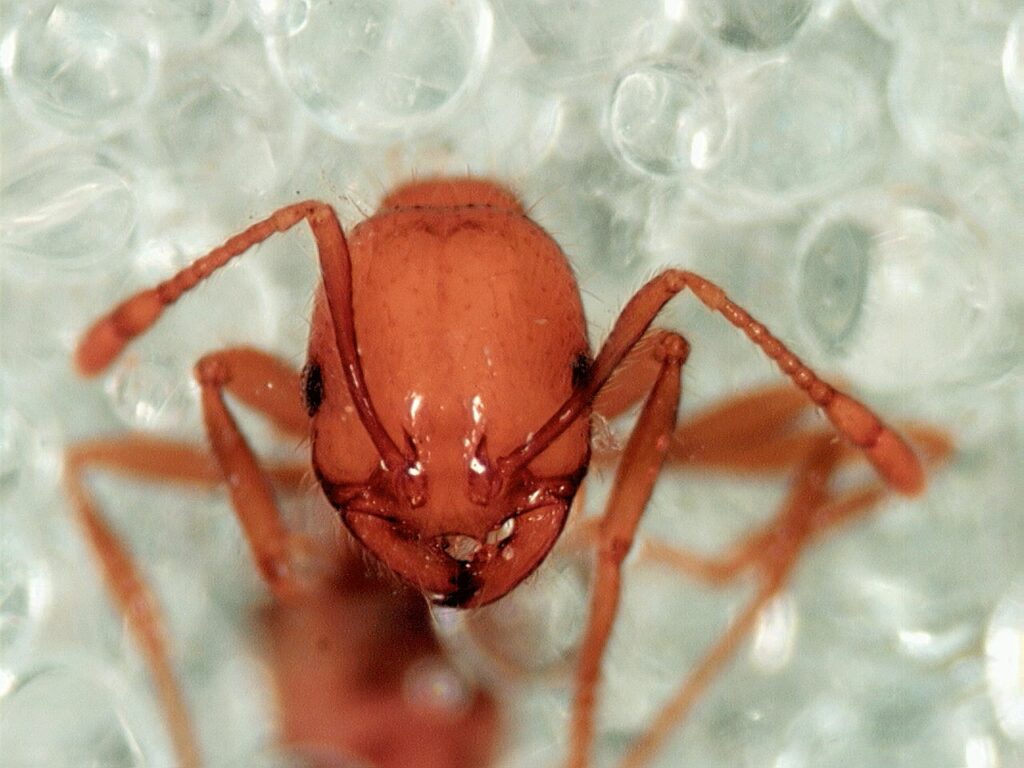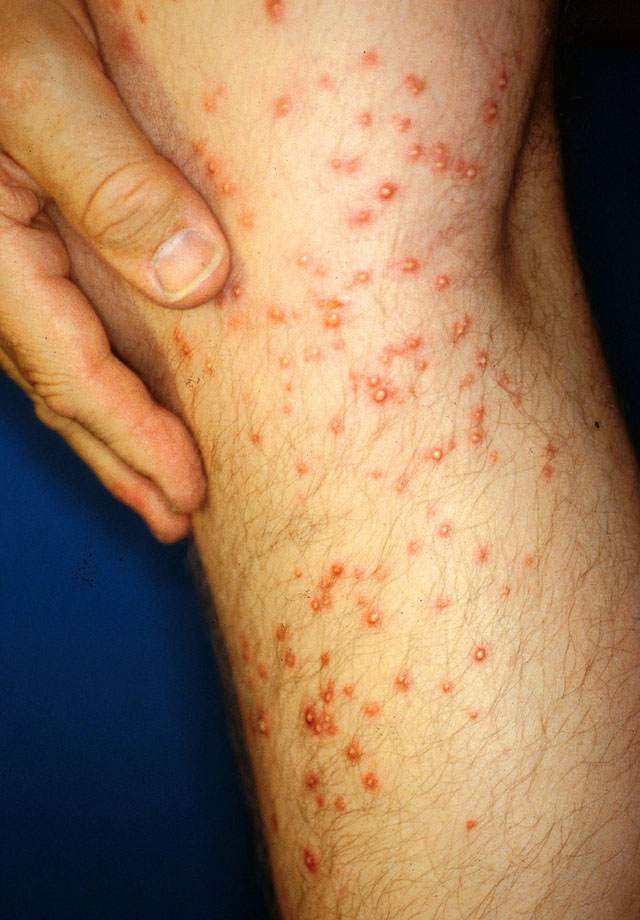There are many different species of ants that can invade your property, but some are more dangerous than others. Fire ants, for instance, can bite and sting. Here is everything you need to know about fire ant bites and stings.
Quick facts about fire ants
Fire ants are not native to North America. They are originally from South America but have been imported to the North through shipping. Here are some quick facts about these dangerous creatures.
- They are called fire ants because of their burning stings. Fire ants are dark red and brown. You may think they are called fire ants because of their color, but you are mistaken. They are called fire ants because of the burning sensation you feel when you fall victim to their bites and stings.
- They can both bite and sting. Fire ants do bite. But the sudden pain you feel when they attack is actually not from the bite but from the sting. Fire ants attack by biting onto your skin with their jaws and stinging you multiple times with their back stingers. They inject venom into your body with their stingers, giving you a variety of symptoms.
- Fire ant stings can be dangerous. Fire ant bites and stings are not just painful. The venom from fire ant stingers can lead to potentially dangerous symptoms, such as burning and itching, red marks, and life-threatening allergic reactions. It doesn’t help that fire ants are incredibly aggressive as well, putting you at greater risk of these attacks. Fire ant bites and stings are some of the biggest reasons why you should take these pests seriously.

Symptoms of fire ant bites and stings
You will immediately feel pain once fire ants connect their stings. The pain won’t last long — only about a few seconds or minutes. For many, fire ant attacks may just be small inconveniences. But for others, serious symptoms may arise.
- Burning and itching. After the intense and sudden pain from fire ant stings, you may feel a burning and itching sensation. These are primarily caused by the venom. You may feel the burning and itching as your immune system tries to fend off the foreign substance. For some people, the sensation can be a lot stronger and more annoying as the days go by.
- Red marks. Like other insect bites and stings, fire ant attacks result in red marks. The difference is that fire ant attacks can turn into blisters that look like pimples. They may even be filled with pus. To make things worse, fire ants are known to overwhelm their victims with numbers. Those who have been attacked by fire ants will likely have many of these red bumps all over them.
- Allergic reactions. Multiple fire ant bites and stings also mean that you get more of the fire ant venom into your system. This can intensify the burning, itching, and other symptoms of an allergic reaction like difficulty breathing, dizziness, loss of consciousness, and swelling of the mouth or throat. Difficulty breathing and swelling of the mouth or throat can be extremely dangerous because they are signs of a severe allergic reaction, also known as anaphylaxis. This is considered a medical emergency, so seek medical attention immediately if you see the signs.
Treatments to fire ant bites and stings
Fire ant bites and stings typically don’t need treatment. They go away on their own in a few days. You should only be alarmed if the symptoms are severe. With that said, you still shouldn’t take fire ant attacks lightly. Do everything in your power to prevent yourself from scratching the affected areas to avoid infections and further injuries.
- Cold compress. If you don’t show the signs of severe allergic reactions (difficulty breathing or swelling of the mouth or throat), home remedies may be enough to treat fire ant bites and stings. One foolproof home remedy is the cold compress. Use an ice pack or a cloth cooled with cold water on the affected areas for about 10 minutes. This can help reduce swelling.
- Over-the-counter medication. There are accessible and effective products you can use to help reduce itching and other symptoms and prevent infections. You can buy antihistamines over the counter or online to ease minor allergic reactions and itching. You can also buy hydrocortisone creams to ease itching and antibiotic ointments to prevent infections.
- Epinephrine injection. Severe allergic reactions to insect bites and stings are rare, but they do exist. If you happen to be one of the unfortunate few who experience severe symptoms, your doctor may prescribe an epinephrine auto-injector. If it’s your first time experiencing the symptoms, seek medical help immediately, and the medical professionals will likely use epinephrine to you as well to reverse the symptoms. But epinephrine is not a magic solution. Even if you have an epinephrine auto-injector at home, seek medical help if symptoms persist.

How to get rid of fire ants
The best way to prevent fire ant attacks is to not have fire ants in your vicinity. Thankfully, there are some things you can do to get rid of fire ants.
- Call a pest control professional. You may want to get rid of fire ants yourself, but remember that these are incredibly aggressive and dangerous pests that can easily gang up on you and bite and sting you multiple times. It’s a good idea to let professional pest controllers handle them.
- Use commercial ant control products. If you really want to deal with the ant infestation yourself, you can use commercial ant control products like ant baits and pesticides. Read their instructions carefully and follow them diligently to ensure their effectiveness and safety. Also, make sure to wear protective clothing like long-sleeved shirts, pants, and boots whenever you are dealing with ant mounds to protect yourself from attacks.
- Try natural solutions. Don’t stomp on ant mounds even if you are wearing protective clothing. They will only make the fire ants more aggressive. And it’s not an effective ant control solution anyway. You can get rid of fire ants naturally with boric acid, diatomaceous earth, soapy water, or vinegar.

